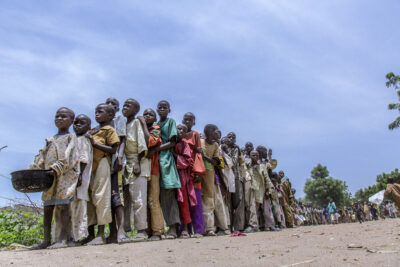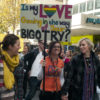In the early 1990s, a consensus was emerging among scholars and those foundations invested in social knowledge that sexuality research was vital to understanding the broader landscape of social life. And yet, there remained a “substantial dearth of knowledge which in turn [had] sustained many of the social crises evident” in the United States at that time, in large part because the funding infrastructure for such research was lacking. In an effort to address these lacunae, from 1996 to 2006, the SSRC’s Sexuality Research Fellowship Program (SRFP), with generous support from the Ford Foundation, catalyzed a new generation of sexuality scholars. Their work promoted and legitimized the field within a wide range of academic disciplines beyond public health, including anthropology, communications, history, and sociology. The fellows of this groundbreaking program undertook research across a broad range of sexuality-related topics—from sexual harassment policies to adolescent sexuality, from reproductive health technology to gender identity—utilized a variety of research methods and theoretical framings, and helped to create an interdisciplinary network of researchers and mentors that continue to support crucial work in the field today.
Since the close of the program, global society has seen a number of significant shifts—major expansions of trans activism; legalization of same-sex marriage in many countries; resurgent movements to restrict access to reproductive health services and to curb sex and gender-inclusive education. The complexities and social importance of these and related trends call for still more profound understanding of sexuality and gendered experience. Under the heading of “Sexuality & Gender Studies Now,” SRFP fellowship alumni were invited to contribute with the goal of critically engaging with the program’s legacy and impact. In these essays and interviews, the fellows reflect on the trajectories of their past and current research. The series also presents an opportunity to look forward to the future of social science research in sexuality and gender studies by reflecting on how this work influences and challenges other zones of inquiry: the social significance of the natural and built environments; migration and the movement of people; the politics of art and performance; religion and spiritual life; and social justice and inequality, to name a few.
If there is one thing that comes through in all the contributions, it is that social science research on sexuality and gendered experience is vital to understanding human society as a whole, now more than ever. In the coming weeks the series will feature incisive work through the lenses of critical race theory, intersectionality, queer theory, and other analyses that sharpen our understanding of global social experience. In conjunction with the 50th anniversary of Stonewall, and in celebration of the contributions of the fellows, we hope you will find these essays and conversations an incitement to intellectual engagement, and consideration of how such engagement informs and is shaped by social action.














